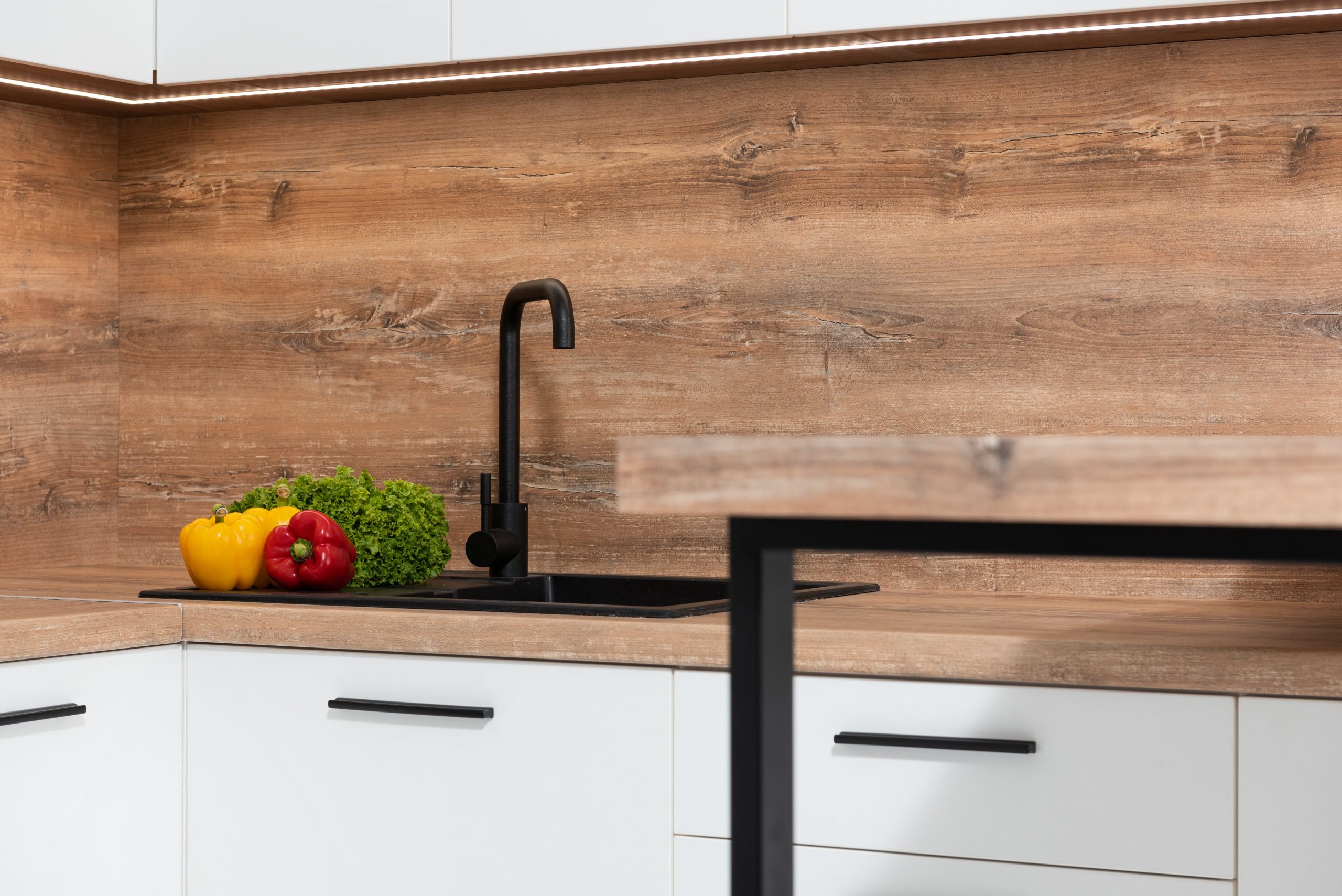In the heart of every kitchen, the unsung hero quietly awaits its moment to shine – the garbage disposal. This humble appliance, often overlooked, plays a pivotal role in maintaining the cleanliness and functionality of our kitchens. As a homeowner, understanding the significance of regular maintenance for your garbage disposal is not just about convenience; it’s about prolonging the lifespan of a crucial kitchen asset.
In the following guide from Service by Scott, we delve into the intricacies of garbage disposals, demystifying their inner workings and shedding light on the simple yet effective measures you can take to ensure their smooth operation. From do-it-yourself maintenance tips to the merits of professional services, this comprehensive exploration aims to empower you with the knowledge needed to keep your garbage disposal running seamlessly.
So, let’s embark on a journey to unravel the secrets of a well-maintained garbage disposal, exploring the do’s and don’ts, the DIY approaches, and the occasions when it’s wise to call in the professionals. By the end of this guide, you’ll not only appreciate the importance of caring for your garbage disposal but also possess the insights to make it a lasting and reliable kitchen companion. Let’s unlock the power of your garbage disposal together.

Understanding Garbage Disposals
In the heart of our kitchens lies a silent workhorse – the garbage disposal. To truly appreciate the importance of maintaining this indispensable appliance, it’s essential to understand how garbage disposals function and the diverse types available in the market.
How Garbage Disposals Work
Garbage disposals are designed to shred food waste into smaller particles, allowing it to pass through the plumbing system easily. Typically installed beneath the kitchen sink, these devices consist of a grinding chamber with rotating impellers or blades. When activated, these blades break down food waste into finer pieces, which are then flushed away with water.
Different Types of Garbage Disposals
There are two main types of garbage disposals: continuous feed and batch feed. Continuous feed disposals are the more common type, allowing you to add food waste while the unit is running. On the other hand, batch feed disposals require a stopper to be in place before they can be activated, providing an additional layer of safety.
Common Issues and Causes
Understanding the common issues that can plague garbage disposals is crucial for effective maintenance. From unusual noises to persistent clogs, these problems can often be traced back to specific causes. Whether it’s a foreign object lodged in the disposal or a motor malfunction, identifying the issue is the first step toward a swift resolution.
By grasping the fundamentals of how garbage disposals operate and the potential challenges they may face, you’re better equipped to implement preventive measures and address issues promptly. In the following sections, we’ll delve into both DIY and professional maintenance strategies to ensure your garbage disposal remains a reliable kitchen ally.
DIY Garbage Disposal Maintenance
Maintaining a well-functioning garbage disposal doesn’t always necessitate a call to the professionals. In fact, with a few simple do-it-yourself techniques, you can keep your disposal in top-notch condition and mitigate potential issues.
Regular Cleaning Techniques
The cornerstone of effective DIY maintenance lies in regular cleaning. A quick and straightforward process, cleaning your garbage disposal involves flushing it with a combination of mild soap and cold water. This not only removes accumulated debris but also helps in preventing unpleasant odors that can emanate from a neglected disposal. Consider incorporating this simple routine into your kitchen cleaning regimen to ensure the longevity of your appliance.
To start, turn off the disposal and unplug it for safety. Next, use a brush or scrubber to clean the visible surfaces, including the rubber splash guard. For a thorough cleaning, drop a handful of ice cubes into the disposal and run it with cold water. The ice helps dislodge any lingering debris and sharpens the blades for optimal performance.
Foods to Avoid Putting Down the Disposal
Knowing what foods to avoid can significantly contribute to the longevity of your garbage disposal. Fibrous and starchy foods, such as celery, potato peels, and pasta, should be kept out, as they can create clogs and strain the motor. Likewise, hard items like bones and fruit pits can damage the blades and should be disposed of through alternative means. By adhering to these guidelines, you not only prevent potential issues but also reduce the risk of unpleasant odors arising from trapped food particles.
In addition to mindful disposal habits, consider using natural deodorizers to maintain a fresh-smelling garbage disposal. Citrus peels, for example, provide a natural and pleasant fragrance while effectively combating odors. Drop a few citrus peels into the disposal, run it with cold water, and let the power of nature refresh your kitchen.
As we delve further into the realm of DIY maintenance, we’ll explore additional facets, including the importance of running cold water during use and the strategic use of citrus peels for freshness. These simple yet effective measures can make a significant difference in the performance and lifespan of your garbage disposal.

Professional Garbage Disposal Maintenance
While DIY maintenance goes a long way in preserving the health of your garbage disposal, there are times when the expertise of a professional becomes indispensable. Service by Scott, with over 30 years of experience in the plumbing and maintenance industry, stands ready to elevate the care and longevity of your garbage disposal through specialized professional services.
The Role of Professional Services
Professional garbage disposal maintenance involves a comprehensive assessment and servicing by licensed technicians. Service by Scott brings a wealth of experience to the table, ensuring that every aspect of your garbage disposal is thoroughly inspected. From checking the motor’s functionality to examining the blades and internal components, the meticulous approach of professional services aims to detect and rectify issues before they escalate.
Importance of Scheduled Maintenance
Scheduled maintenance, a hallmark of Service by Scott’s commitment to excellence, goes beyond mere troubleshooting. Regular check-ups, performed by skilled professionals, not only address existing problems but also identify potential issues that might have gone unnoticed. This proactive approach to maintenance significantly reduces the risk of sudden breakdowns, saving homeowners from the inconvenience and cost of emergency repairs.
Benefits of Hiring a Licensed Technician
Service by Scott emphasizes the significance of entrusting your garbage disposal maintenance to licensed technicians. Licensing ensures that the professionals handling your appliance are well-versed in industry standards and possess the necessary skills to deliver high-quality service. By choosing licensed technicians, homeowners can have confidence in the expertise applied to their garbage disposal, leading to a more reliable and efficient kitchen appliance.
When to Consider Professional Help
Knowing when to seek professional help is paramount in ensuring the continued functionality of your garbage disposal. Service by Scott advises homeowners to look out for signs such as persistent clogs, unusual noises, or foul odors emanating from the disposal. While DIY troubleshooting can address minor issues, these signs often indicate underlying problems that require the precision and experience of a professional technician.
Run Cold Water While Using
The simple act of running cold water while using your garbage disposal might seem like a routine task, but its significance goes beyond basic functionality. In this section, we explore why this practice is crucial for maintaining the health of your garbage disposal and how it contributes to a more efficient and trouble-free kitchen experience.
Significance of Cold Water
Running cold water serves as a vital companion to the operation of your garbage disposal. The cold water helps in several ways, primarily by solidifying any grease or fat present in the food waste. This prevents the buildup of these substances on the blades and inside the disposal, reducing the risk of clogs and maintaining optimal performance over time. The cooling effect of the water also prevents the motor from overheating during prolonged use, adding an extra layer of protection to your appliance.
How Cold Water Enhances Disposal Functionality
As you run cold water, it effectively flushes the shredded food particles through the plumbing system. This not only ensures a clean and unobstructed disposal but also prevents the accumulation of debris that could lead to foul odors or even more severe issues. The continuous flow of cold water aids in swiftly transporting the waste away, promoting a more hygienic and efficient disposal process.
Best Practices for Running Cold Water
Service by Scott recommends a few best practices when it comes to running cold water while using your garbage disposal. Firstly, allow the water to run for at least 20 seconds after turning off the disposal. This helps ensure that all the debris is thoroughly flushed away. Additionally, avoid using hot water as it can melt fats and encourage their accumulation in the plumbing system, potentially leading to clogs.

Know When to Call a Professional
While DIY maintenance can address many garbage disposal issues, there are times when the expertise of a professional becomes paramount. In this section, we’ll explore the telltale signs that indicate it’s time to enlist the services of a seasoned professional like Service by Scott.
Recognizing Signs of Disposal Issues
Understanding when to call a professional begins with recognizing the signs of disposal issues. Unusual noises emanating from the disposal, such as grinding or clunking sounds, can be indicative of mechanical problems. Persistent clogs that resist conventional DIY methods, despite regular cleaning, may signify a deeper issue within the system. Additionally, foul odors that persist even after using deodorizing agents could be a sign of hidden problems.
To determine whether professional intervention is necessary, homeowners should pay attention to these signs and not delay seeking assistance if they persist. Ignoring these signals may lead to further damage and potentially more costly repairs down the line.
DIY Troubleshooting Before Seeking Professional Help
Before reaching out to a professional service, homeowners can perform some basic troubleshooting. Check for any visible obstructions in the disposal, and attempt to reset the unit if it’s not functioning. However, if these DIY measures fail to resolve the issue or if the problem persists, it’s a clear indication that professional expertise is required.
Service by Scott advises homeowners not to wait until a minor issue escalates into a major problem. Calling a professional at the right time can prevent further damage, save on repair costs, and ensure the continued functionality of your garbage disposal.
Why Choose Professional Help
Choosing professional help for your garbage disposal concerns ensures a thorough examination of the entire system. Service by Scott, with its decades of experience, brings a trained eye to identify underlying issues that may not be apparent to the untrained observer. Moreover, licensed technicians possess the skills and tools needed to address complex problems effectively, restoring your garbage disposal to optimal working condition.
Knowing when to call a professional is an essential aspect of responsible garbage disposal ownership. By heeding the warning signs and seeking timely assistance, homeowners can maintain a smoothly functioning kitchen and extend the lifespan of their valuable appliances.
Avoid Putting Non-Food Items Down the Disposal
In the pursuit of a smoothly operating garbage disposal, it’s crucial to discern between what belongs and what doesn’t. This section delves into the potential hazards associated with putting non-food items down the disposal and offers insights into maintaining a healthy appliance by adhering to best practices.
Common Non-Food Items to Avoid
Your garbage disposal is a robust kitchen asset designed to handle food waste, but it’s not invincible to non-food items. Items like bones, fruit pits, utensils, and fibrous materials such as coffee grounds or corn husks can wreak havoc on the disposal’s blades and motor. To maintain the longevity of your appliance, it’s paramount to be mindful of what goes down the drain.
Potential Damage Caused by Non-Food Items
The disposal’s blades are engineered to break down soft organic matter, not hard or fibrous materials. When non-food items find their way into the disposal, they can dull the blades, strain the motor, and even cause blockages in the plumbing system. This can lead to inefficiencies, unpleasant odors, and in severe cases, a malfunctioning disposal.
Proper Disposal Methods for Non-Food Items
Service by Scott emphasizes the importance of educating homeowners on proper disposal methods. Instead of tossing non-food items down the disposal, consider alternative means of disposal. For bones and fruit pits, use a compost bin or discard them in the regular trash. Fibrous materials like coffee grounds are better suited for composting or disposal in a dedicated container. By adopting these practices, you not only safeguard your garbage disposal but also contribute to a more sustainable waste management approach in your household.
Understanding the potential consequences of putting non-food items down the disposal is a proactive step towards maintaining a trouble-free kitchen. By exercising caution and incorporating proper disposal habits, you ensure that your garbage disposal remains a reliable and efficient part of your daily culinary endeavors.

The Importance of Regular Maintenance
In the realm of household appliances, the adage “prevention is better than cure” holds particularly true for garbage disposals. This section explores the paramount importance of regular maintenance in preserving the functionality, efficiency, and longevity of your disposal. By delving into the various facets of routine care, we unveil the multitude of benefits that stem from consistent attention to this indispensable kitchen asset.
Prolonging the Lifespan of Your Garbage Disposal
Much like any mechanical device, a garbage disposal has a finite lifespan. However, the frequency and quality of maintenance play a pivotal role in determining how long your appliance will faithfully serve you. Regular maintenance, including cleaning, inspection, and minor adjustments, acts as a safeguard against premature wear and tear. This, in turn, extends the lifespan of your garbage disposal, offering a substantial return on the initial investment.
Preventing Costly Repairs and Replacements
Neglecting the regular upkeep of your garbage disposal can lead to a domino effect of issues, culminating in costly repairs or even the need for a complete replacement. By contrast, routine maintenance allows you to identify and address minor problems before they escalate. This proactive approach not only saves you money in the long run but also spares you the inconvenience of sudden breakdowns, ensuring your kitchen remains a hub of efficiency.
Environmental Benefits of a Well-Maintained Disposal
A well-maintained garbage disposal doesn’t just benefit your wallet; it also contributes to environmental sustainability. By preventing clogs and blockages, you reduce the likelihood of wastewater overflows, which can have detrimental effects on local ecosystems. Additionally, the efficient operation of your disposal minimizes the need for harsh chemical drain cleaners, promoting a more eco-friendly approach to kitchen maintenance.
Conclusion
In the journey through the intricacies of garbage disposal maintenance, we’ve uncovered the key practices that contribute to a trouble-free kitchen experience. From the importance of running cold water to the perils of putting non-food items down the disposal, each insight serves as a building block toward the overarching goal: a well-maintained and long-lasting appliance.
Regular DIY maintenance, as explored in earlier sections, empowers homeowners to take charge of their garbage disposal’s health. Simple practices like cleaning, mindful food disposal, and the strategic use of citrus peels can go a long way in preventing common issues and ensuring optimal performance.
However, there are moments when the expertise of professionals becomes indispensable. Service by Scott, with over 30 years of dedicated service, stands ready to elevate your garbage disposal maintenance to the next level. From thorough inspections to addressing complex issues, their licensed technicians bring a wealth of experience to every service call, ensuring that your kitchen remains a hub of convenience.
In conclusion, the key to reliable and efficient garbage disposal lies in a holistic approach to maintenance. Whether adopting DIY strategies or seeking the expertise of professionals, the investment in regular care pays dividends in terms of a prolonged appliance lifespan, cost savings, and environmental responsibility.
Don’t wait for issues to escalate; take proactive steps to maintain your garbage disposal. Contact Service by Scott today for expert assistance and experience the difference that professional care can make in the heart of your kitchen. Enjoy the peace of mind that comes with a well-maintained garbage disposal, and let Service by Scott be your trusted partner in keeping your kitchen running smoothly.
FAQs
How often should I clean my garbage disposal?
Regular cleaning is essential to prevent odors and maintain optimal performance. Aim for cleaning at least once a week using mild soap and cold water. Additionally, consider using citrus peels for a natural deodorizing effect.
Can I use any cleaning agent?
It’s recommended to use mild dish soap or specialized garbage disposal cleaning agents. Avoid harsh chemicals, as they can damage the disposal and harm the environment.
What foods should never go down the disposal?
Fibrous and starchy foods like celery, potato peels, and pasta should be avoided. Also, refrain from putting bones, fruit pits, and non-food items into the disposal, as they can damage the blades and motor.
When should I seek professional help?
If you experience persistent issues like unusual noises, persistent clogs, or foul odors, it’s time to call a professional. Additionally, if DIY troubleshooting doesn’t resolve the problem, seeking expert assistance is advisable.
How do I create a maintenance schedule?
Establishing a maintenance routine involves regular cleaning, periodic inspections, and being mindful of disposal practices. Consider scheduling professional maintenance annually to address potential issues before they escalate.

